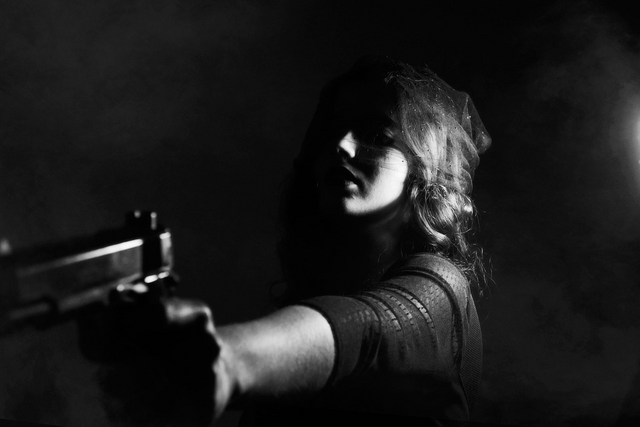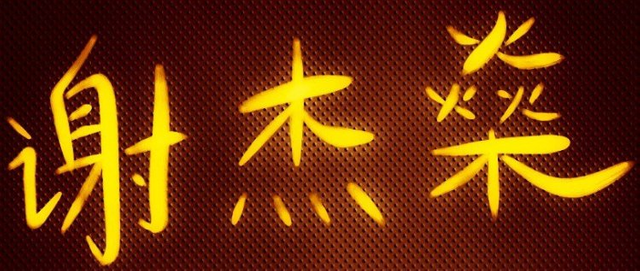Is There A Place for Morally Ambiguous Characters?

Last week, Rawyle Nyanzi wrote about black and white morality in fiction, and JD Cowan expanded on why readers love them .
Characters with clear moral codes make for compelling reading. Armed with an uncompromising view of right and wrong, they act decisively against evil wherever they find it. Yet, fettered by their same uncompromising principles, they must also struggle to preserve their souls in a corrupt and decadent world. When contrasted against clear-cut villains, these heroes shine all the brighter.
Modern day stories of ‘moral ambiguity’ are wretched in comparison. There are no ‘heroes’, or else the good guys are destroyed and the wolves fight over the scraps. In a world without virtue, the only struggle is to see who can sin the deepest into an ocean of depravity. By eliminating the possibility of virtue and justice in their worlds, these stories eliminate any possibility of readers becoming emotionally invested in the characters. Without a moral component, without any higher standards to aspire to, the only direction these stories can go is down – down into an ever-deeper pit of nihilism, brutality and bloodshed.
But this doesn’t mean morally ambiguous heroes are inherently wrong.
What the Good Man Won't Do
The greatest strength of the morally grey or flexible character is the ability to do what the good man will not.
A conventionally heroic character will shun betrayal, assassination, espionage, or other unconventional or underhanded tactics. A character with less rigid morals has no internal resistance to such tactics. It is entirely within his character to do such things, and the reader lives vicariously through his exploits.
What would you do in a given situation if you weren’t bound by conventional morals or laws? The morally ambiguous protagonist is the answer to that question. To such a character, the ends justifies the means. He offers the reader an escape from the strictures of everyday life, to fantasize and to live vicariously through his deeds.
But for the story of such a protagonist to resonate with the audience, the ends must itself be ethical.
In the same way a story about a hero upholds morality, a story featuring a morally grey protagonist is also a moral tale. But it is the kind of tale that can only be told by a specific kind of character.
Sliding Scale of Ethics
Morally ambiguous characters exist on a spectrum. On the near end, we have the good man forced into difficult situations. He wants to do the right thing, but his circumstances force him up against the line, and may even push him past it. This is the realm of the hardboiled detective, a knight in sour armor in a world of corruption.
In the SFF field, we have Harry Dresden. One part wizard, one part private investigator, Dresden takes on paranormal crimes in Chicago, bringing him into conflict with fallen angels, dangerous Fae, necromancers, eldritch monsters, and more. In the course of his adventures, allied himself with organized crime and various supernatural factions, uses prohibited and dangerous magic, tortured enemies, and more. He may be trying to be a good man, but his means argue otherwise. Indeed, compared to his allies, he is a few steps away from becoming a monster.
Despite all that, his story is still a morality tale.
Throughout the series, characters call him out on his behaviour, and he is himself concerned that he may be becoming the things he fights. Yet despite his flaws and shortcomings, he still does good and saves the day.
The next step down the line is the ruthless antihero with fundamentally good intentions. His methods are extreme, illegal or both; he has few virtues but lines he won’t cross; but he still wants to do good in his own way.
Dashiell Hammett’s Continental Op is a master manipulator, employing deceit and deception to resolve his cases. In Red Harvest, he single-handedly incites a gang war to clean up the town of Personville. Having witnessed a boundless ocean of cruelty and misery, he is jaded and world-weary, but he tries to do what he thinks is right. Near the closing of The Dain Curse, a female client describes him as:
“A monster. A nice one, an especially nice one to have around when you're in trouble, but a monster just the same, without >any human foolishness like love in him”.
The Continental Op is a hardboiled detective, but readers still sympathise with him because he uses underhanded means against bona fide villains. The ends of ridding the world of a greater evil rationalises the lesser evil of the means. And yet there are always consequences: in Red Harvest one of his colleagues abandons him because he’s unsure of the Op’s innocence; his own client sees him as a monster, and he fears becoming like his boss, whom he calls "a shell, without any human feelings whatsoever".
At the far end of the scale, the character is a full-blown outlaw and predator. Yet he is not a monster in human skin, for he still has a code he adheres to, and in his own way upholds righteousness.
Andrew Vachss’ Burke series follows the exploits of a career criminal and mercenary. He is a killer, thief and conman; his family of choice are all criminals; and in one scene he teaches a fellow thief how to crack a safe without caring about the intended targets. Yet he is fiercely protective of his family of choice, and he reserves his wrath for child abusers and rapists. Burke stays his hand from the innocent (at least on the page), he lives by a code of morals, and he is able, in his own way, to form meaningful relationships. He is no angel, but he fights worse monsters.
An undercurrent of rage runs through the series. In Vachss' words:
“I wanted to show people what hell looked like, and I didn't >think an angel would be the right guide.”
Some stories can only be told by a certain kind of character. The Burke series throws a spotlight on how criminals think and behave, how the American legal system fails child sex abuse victims, the aftershocks of child abuse, and more. By writing a character who is part of this milieu of corruption, Vachss delivers an unflinching look into the heart of hell. A conventional hero, standing on the outside looking in, wouldn't be able to deliver the kind of intimate perspective Burke could.
Dark Knights, Bright Stories
Critics who praise stories just for having ‘morally ambiguous characters’ miss the point of having such characters. Simply having characters who exist outside conventional moral norms isn’t enough; readers want stories of virtue, justice, and morality. They want stories where good triumphs over evil, where the wicked can find redemption, where they can learn about monsters in human skin without having to stain their souls.
Dark stories populated with sociopaths, barbarians and monsters offer no contrast of values, no heroes to emulate, no standards to aspire to, and no reason to read. They celebrate nihilism and degeneracy, and promote only nihilism.
Stories with morally ambiguous protagonists who work towards good ends promise a different experience. They show how good can come from evil, how flawed characters can still do good in their own way, how evil men think and act. They may be dark and gritty and uncompromising, they may undermine and ridicule the very idea of conventional heroics, but these stories still point to higher truths and values.
It is this undercurrent of truth, justice and values that appeals to readers. It is a promise that good wins out, that the evil will be punished, that sinners still have hope for redemption; it is a lesson about the failings of mere men, about how giving in to vice and temptation corrupts and destroys, and about the true nature of predators. Morally ambiguous protagonists are a vehicle to highlight these truths and values. Take away this undercurrent, and all that is left is the screaming abyss.
--

If you want action-packed stories with an undercurrent of morality, check out my novel HAMMER OF THE WITCHES.
To stay updated on my latest stories, promotions and other updates, sign up for my newsletter here.